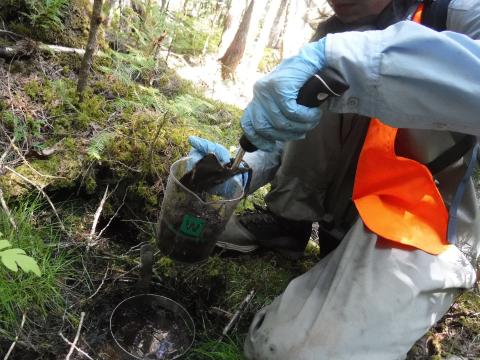Effects of Timber Harvesting on the Wetland Ecology of Northeastern Lowland Forests

The Northern Forest is a working forest that provides benefits, including timber production, from a range of ecological community types broadly classified as lowlands and uplands. Northern Forest lowlands, including forested swamps and seeps, contain regionally important commercial tree species such as northern white cedar, balsam fir, and red spruce. Though widely harvested, impacts of forestry operations on these ecosystems are poorly understood. Yet, demand is strong for products such as softwood pulp, studwood, and shingles from tree species common in seasonally wetted lowlands. These intermittent waters are increasingly recognized for supporting water quality, biodiversity, and critical wildlife habitat and may encounter increased regulation as the jurisdictional definition of “Waters of the United States” is revised.
NSRC researchers will quantify ecological impacts in these lowlands and develop standardized measurement methods for assessing wetland habitats to help guide planners and forest managers. Researchers will develop a better understanding of intermittent wetland habitats and ecological processes associated with northern white cedar forests. They will compare wetland processes related to decomposition and insect populations across timber harvesting treatments and develop standard quantification methods for aquatic leaf litter processing, wood decomposition, and insect biodiversity in seasonally wetted lowlands that can be applied throughout the Northern Forest.
To aid forestry practitioners in lowland forest management planning, researchers will share tradeoffs in wetland ecosystem condition and biodiversity associated with tree harvesting methods. By understanding these ecosystems and how they respond to harvest, this study will inform sustainable management and prepare stakeholders for questions regarding ecological tradeoffs in management of intermittent waters throughout Northern Forest lowlands.
